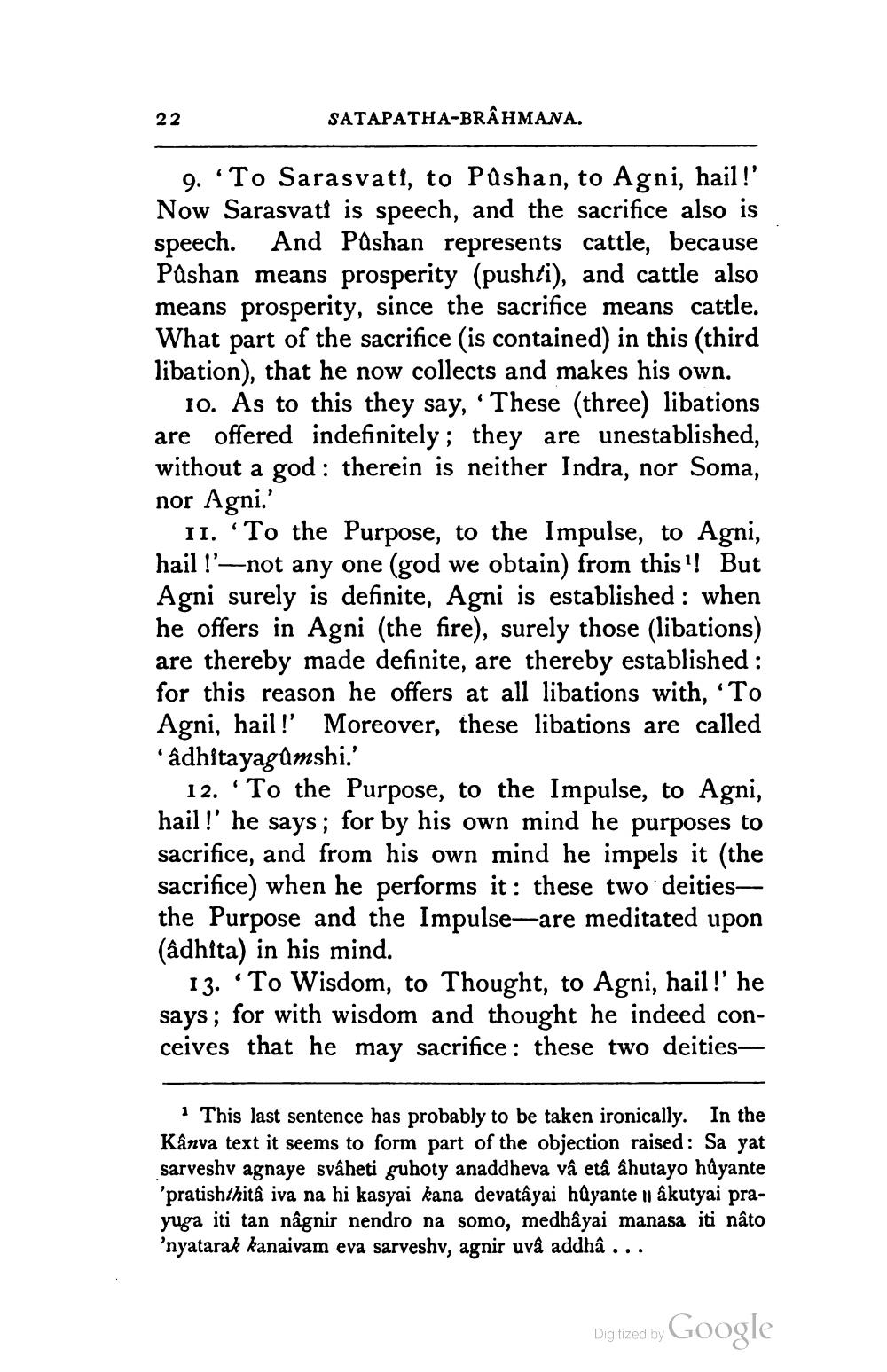________________
22
SATAPATHA-BRAHMANA.
9. 'To Sarasvati, to Pashan, to Agni, hail!' Now Sarasvati is speech, and the sacrifice also is speech. And Pashan represents cattle, because Pashan means prosperity (pushti), and cattle also means prosperity, since the sacrifice means cattle. What part of the sacrifice (is contained) in this (third libation), that he now collects and makes his own.
10. As to this they say, 'These (three) libations are offered indefinitely; they are unestablished, without a god : therein is neither Indra, nor Soma, nor Agni.
11. 'To the Purpose, to the Impulse, to Agni, hail !'-not any one (god we obtain) from this !! But Agni surely is definite, Agni is established: when he offers in Agni (the fire), surely those (libations) are thereby made definite, are thereby established: for this reason he offers at all libations with, 'To Agni, hail!' Moreover, these libations are called 'âdhitayagūmshi.'
12. "To the Purpose, to the Impulse, to Agni, hail!' he says; for by his own mind he purposes to sacrifice, and from his own mind he impels it (the sacrifice) when he performs it: these two deitiesthe Purpose and the Impulse--are meditated upon (âdhita) in his mind.
13. 'To Wisdom, to Thought, to Agni, hail!' he says; for with wisdom and thought he indeed conceives that he may sacrifice: these two deities
· This last sentence has probably to be taken ironically. In the Kânva text it seems to form part of the objection raised: Sa yat sarveshv agnaye svaheti guhoty anaddheva va etâ âhutayo hûyante 'pratishthitâ iva na hi kasyai kana devatâyai hūyante 11 âkutyai prayuga iti tan nâgnir nendro na somo, medha yai manasa iti nâto 'nyatarak kanaivam eva sarveshv, agnir uvâ addhâ ...
Digitized by Google




